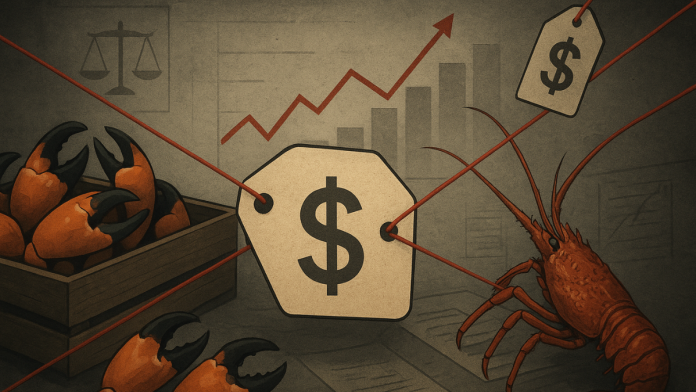In a surprising turn of events, Dennis Dopico, a vice president at a Miami-based seafood wholesale company, has pleaded guilty to participating in a price-fixing conspiracy. Price-fixing is when companies secretly agree on the prices they will pay or charge instead of letting competition decide, which can cheat workers and customers out of fair deals. The scheme involved coordinating with competitors to manipulate the prices paid to fishermen for stone crab claws and spiny lobsters in Florida.
Dopico admitted that between 2023 and 2025, he conspired with other companies to suppress competition. By agreeing on fixed prices, the conspirators made sure that fishermen received less money for their catch. The scheme hurt hardworking Americans who rely on fishing for their livelihood, officials said.
How the Scheme Worked
Court documents show that Dopico exchanged numerous text messages and phone calls with other seafood company employees. In these messages, the group coordinated the exact prices they would offer to fishermen and even adjusted these prices as harvest seasons changed. For example, in September 2023, Dopico received lobster pricing details from a co-conspirator and replied with instructions to keep the information secret. In October of the same year, he agreed to match stone crab claw prices set by another company, showing clear coordination to maintain unfair pricing.
Japanese hybrids set to gain price advantage over Korean cars in US
The total volume of commerce affected by the conspiracy was estimated at around $8 million. Dopico admitted guilt to one felony count of restraining trade in violation of the Sherman Antitrust Act. The Sherman Antitrust Act is a U.S. law that makes it illegal for companies to unfairly limit competition, such as by fixing prices or controlling markets, to protect consumers and workers.
Legal Penalties and Court Proceedings
Price-fixing is a serious federal crime in the United States. Individuals who commit such offenses face up to 10 years in prison and fines of up to $1 million. Corporations involved may face fines up to $100 million. In some cases, fines can be even higher if the financial gains from the crime or the losses to victims exceed the standard limits.
The court has scheduled Dopico’s sentencing hearing for January 5, 2026. A federal judge will determine the final sentence after reviewing legal guidelines and other factors related to the case.
Federal authorities, including the U.S. Fish and Wildlife Service and the Department of Justice’s Antitrust Division, have been actively involved in investigating and prosecuting this case. Omeed Assefi, Acting Deputy Assistant Attorney General, stated that conspiracies like this unfairly take money out of the pockets of hardworking Americans. U.S. Attorney Jason A. Reding Quiñones added that price-fixing not only cheats fishermen but also squeezes restaurants and makes families pay more at the table.
Canada lowers Russian oil price cap to $47.6 per barrel in coordinated sanctions
Impact on Fishermen and Seafood Market
Price-fixing in the seafood industry affects more than just the fishermen. By keeping prices artificially low, these schemes hurt the entire supply chain, including restaurants and families who buy seafood. Officials say such conspiracies can distort the market and reduce trust in businesses that rely on natural resources.
The case highlights how illegal schemes can quietly harm workers and consumers alike. Text messages and phone records collected by investigators revealed the level of planning and secrecy used to carry out the conspiracy. Authorities, including Doug Ault, Assistant Director of the U.S. Fish and Wildlife Service Office of Law Enforcement, described the evidence as clear proof that Dopico and his co-conspirators intentionally suppressed competition for their benefit.
The Department of Justice and U.S. Fish and Wildlife Service continue to investigate violations in the seafood industry to ensure that responsible businesses and workers are protected. Officials emphasize that conspiracies like this rob hardworking Americans of the chance to earn a fair wage and threaten the sustainability of fisheries that communities rely on.
To read the original order please visit U.S. Department of Justice website


